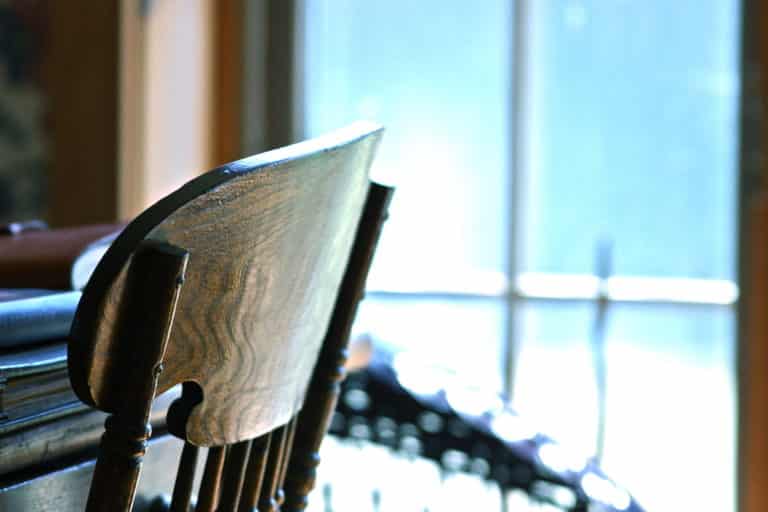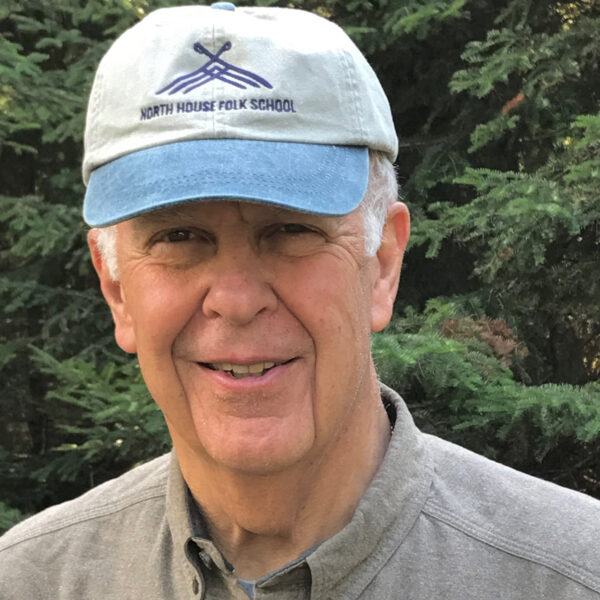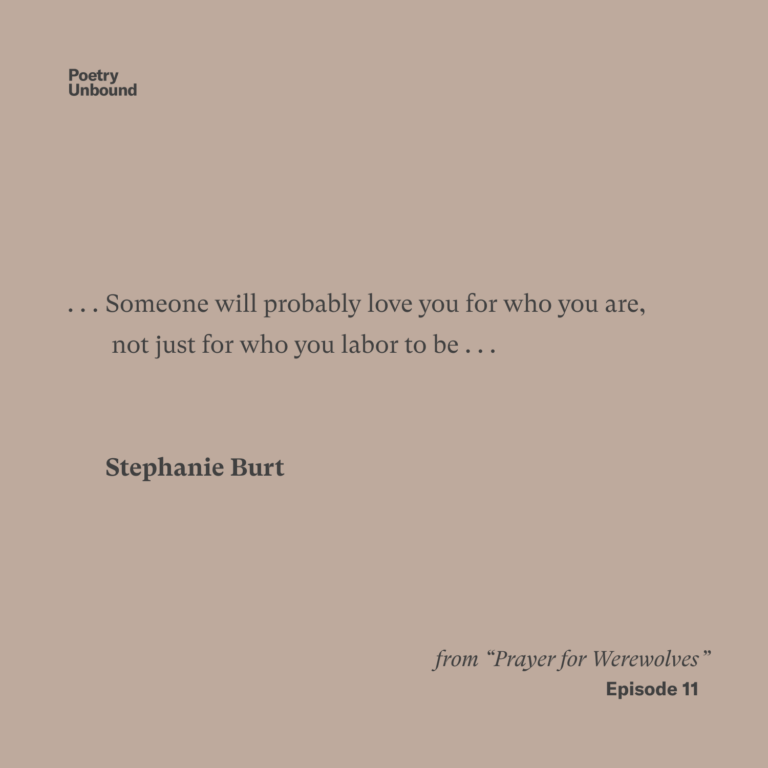
Image by Guy Mayer/Flickr, Attribution-NonCommercial-NoDerivs.
Dear Courtney: Our Shared Journey Toward Imperfect Wholeness
Dear Courtney,
I have so many reasons to treasure our friendship. Among other things, you’ve invited me into your world, an act of trust, which has made my world larger — a true gift. You and your 30-something friends have opened my eyes to realities and possibilities that a white, straight, well-off, 76-year-old guy like me would otherwise have missed. I’m ever grateful.
At the end of your letter to me, you ask, with a grin, to make you wiser. That’s way above my pay grade! You and I both know that everyone has inner wisdom, and one of the best ways to evoke it is in dialogue. When we knock down the walls that keep us apart (e.g., gender and age), and walk into that in-between space, we all have a chance to wise up! In this exchange of letters with you, dear friend, I’ve already found myself growing in my understanding of the topic you wrote me about last Friday: women, men, and the paths we walk.
As I read your account of the young women you were with — some of whom lamented that they don’t have a compelling sense of purpose — two powerful feelings came up in me. I felt angry, again, at a society that makes so many people — including children, elders, and men — feel that they are “not enough” by devaluing certain roles and blocking certain people from pursuing their goals. At the same time, I feel hope in the fact that you and your friends talk openly and honestly about your pain and its sources. That’s a vital step in every social change movement I know anything about, so power to all of you.
You wrote,
“We don’t wake up every morning and leap out of bed for work that is easy to express in a sound bite and directed and in pursuit of one clear goal.”
Honestly, if someone told me they woke up that way, I’d tell them to stop marketing their life and start living it! Most of us value a lot of things and serve a variety of purposes; some of them reinforce each other and some tug at each other. I’m one of those “diffuse” people you wrote about. When I’m asked to sum up my purpose in an “elevator speech,” I say, “I don’t have one. I always take the stairs! If you’ll walk with me a while, I’d love to talk.”
The only story I know well is my own, so I need to return briefly to the thrilling days of yesteryear. When I was in my 30s, “purpose” was very unclear to me. Not until I was in my 50s did my vocation begin to feel coherent. At 30, all I knew for sure was that I didn’t want my life and work to be defined by a dominant and domineering organization. So I worked in marginal places, avoiding the centers of power; e.g., with a Ph.D. in hand, I became a community organizer rather than a university professor. I made little money and feared disappearing from view, but I valued my creative freedom more than money or status. (Yes, I had a family, a spouse and three children. No, I did not have a trust fund. But of course I had a strong safety net in terms of race, gender, and class privilege, along with a Ph.D. financed by a scholarship.)
I never saw my vocational journey in terms of achieving great things. I saw it then as I see it now: a series of probes into my gifts and the needs of the world, trying to discover where they might intersect. Some of those probes took me into the light and others took me into dark places, including several deep dives into depression. I’ve come to regard my probes as “experiments with truth,” to borrow Gandhi’s words. Like all experiments, some succeeded and some failed.
You wrote,
“I was looking around this table at these women, all of them doing incredible work in the world while also being loving mothers, friends, partners, neighbors, and thinking, ‘It’s crazy that this group of women doesn’t see themselves as having purpose.’”
I’d have been thinking the same thing, but with a twist: My hunch is that a lot of your women friends — certainly the ones I’ve met — are making probes of the sort I made, “living the questions” in ways that have meaning right now and will someday take them into meaningful answers.
Of course, I wouldn’t try to talk your friends out of their feelings. Feelings are feelings, not strategic ideas, and must be honored as such. I’d simply encourage them to probe their feelings deeply, to see what more they might discover about themselves and their work in the world. I might even suggest that, at least for a moment, they flip things over and congratulate themselves for refusing to foreclose prematurely on purpose, as this society keeps pressing young adults to do. (Older Americans, I beseech you: Stop telling young people that they need to get crystal-clear on what they plan to do with their lives! Did you have a plan at age 22? If so, is that what you’re doing now?)
Courtney, your letter poses big questions about gender differences in how we hold vocation and values. As a recovering sociologist, I have near-zero confidence in big generalizations on questions of that sort. What I can say is that the men I know best struggle as much with questions of purpose as do your women friends. Yes, this society opens more vocational paths for men than for women, and offers men bigger material rewards for walking them. That’s institutional sexism. We must eradicate it and all the other “-isms” that go with it. But in my view, few of the well-paved paths in this society are “paths with a heart,” paths that lead to meaning. Paths of that sort have to be hacked out of life’s confusions and complexities by men and women alike, and I see you as one of your generation’s trailblazers.
Among men as I know them, few are so consumed by singular purpose that they ignore all else that’s important in life. But that’s not to say that all is well among us. I’ve seen us lose our sense of identity — and sometimes our integrity — as our work roles diminish or disappear. I don’t believe this happens because we men think too much of ourselves. It happens because we haven’t done the inner work required to develop a sense of self that’s grounded more in who we are than in what we do. When men lose sight of true north, it’s more from inner emptiness than from an overstuffed sense of self-importance. That’s when some go “looking for love in all the wrong places,” places that may involve sex but more often, I think, involve substance abuse or lust for wealth, power, or fame.
The most common spiritual malady among the men I know is not the kind of ego-inflation that “disappears” everything else in their lives. It’s a low level of depression that sometimes drops them into dark places where their sense of self becomes flimsy and even disappears. As you know, I speak from experience. This could change, I think, if more men came together — as you and your friends do — to talk vulnerably about their lives. There’s a reason why one of the best-known books on male depression is titled I Don’t Want to Talk About It.
Your comments about men’s moral failings led me to say a few words not about others but about myself. Something about “casting the first stone,” as I recall… You know me pretty well, know that I have a lifetime supply of flaws and faults. I have a hunch that the best words I’ve ever written have been written from and to my own mixed condition, written in hopes they might speak to others who share my broken wholeness.
Not long ago, in response to one of your beautiful columns here at On Being, I wrote this:
“When Florida Scott-Maxwell was 85, she wrote (in The Measure of My Days), “You need only claim the events of your life to make yourself yours. When you truly possess all you have been and done…you are fierce with reality.” That’s how I feel when I’m able to say: “I am that to which I gave short shrift and that to which I attended. I am my descents into darkness and my arising into light, my betrayals and my fidelities, my failures and my successes. I am my ignorance and my insight, my doubts and my convictions, my fears and my hopes.”
The word “integrity” comes from a root that means “intact.” At bottom, it has to do with being “integral,” whole and undivided. But wholeness does not mean perfection. It means embracing our brokenness as an integral part of life. Do men compromise their integrity more than women? I don’t know, though I’m inclined to think we share the human condition. What I do know is that I yearn for the day when men and women alike can sit with people they trust and share a journey toward this kind of wholeness.
I’ll close with one of the big questions I’m holding as I enter the late autumn of my life: Given all my mess-ups, how have I managed to survive myself? As age gives me an occasional glimpse into “the simplicity on the other side of complexity,” a few answers become clear: grace and forgiveness; the unconditional love of family and friends; the openness of folks with whom I’ve shared stories, theirs and mine, reassuring me that I’m not alone in my struggles. More grace. More forgiveness…
Courtney, you are a person who, in one way or another, has blessed me as good friends do with some of the most healing words I know: “Welcome to the human race!”
Maybe my main purpose in life is to pass on those words to people who need them as much as I do, so that they can get on with offering their gifts to the world. Maybe that’s what you and your friends are already doing for each other.
With much love and gratitude,
Parker

